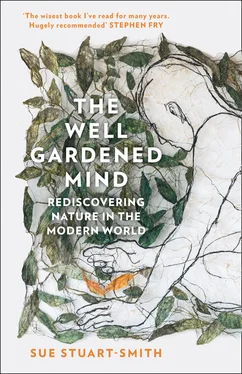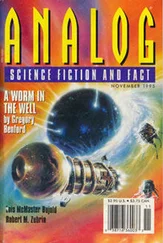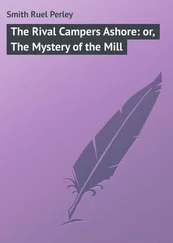Attachment and loss, as Bowlby revealed, go together. We are not primed to dis-attach, we are primed to seek reunion. It is the very strength of our attachment system that makes recovering from loss so painful and difficult. Whilst we have a strong inborn capacity to form bonds, there is nothing in our biology that helps us deal with bonds that get broken and it means that mourning is something we have to learn through experience.
In order to cope with loss, we need to find or re-find a safe haven and feel the comfort and sympathy of others. For Wordsworth, who had suffered the pain of bereavement as a child, the gentle aspects of the natural world provided a consoling and sympathetic presence. The psychoanalyst Melanie Klein alludes to this in one of her papers on the subject of mourning where she writes: ‘The poet tells us that Nature mourns with the mourner.’ She goes on to show how, in order to emerge from a state of grief, we need to recover a sense of goodness in the world and in ourselves.
When someone very close to us dies, it is as if a part of us dies too. We want to hold on to that closeness and shut down our emotional pain. But at some point the question arises – can we bring ourselves alive again? In tending a plot and nurturing and caring for plants we are constantly faced with disappearance and return. The natural cycles of growth and decay can help us understand and accept that mourning is part of the cycle of life and that when we can’t mourn, it is as if a perpetual winter takes hold of us.
We can also be helped by rituals or other forms of symbolic action that enable us to make sense of the experience. But in the secular and consumerist worlds that many of us now inhabit, we have lost touch with traditional rituals and rites of passage that might help us navigate our way through life. Gardening itself can be a form of ritual. It transforms external reality and gives rise to beauty around us but it also works within us, through its symbolic meaning. A garden puts us in touch with a set of metaphors that have profoundly shaped the human psyche for thousands of years – metaphors so deep they are almost hidden within our thinking.
Gardening is what happens when two creative energies meet – human creativity and nature’s creativity. It is a place of overlap between what is ‘me’ and ‘not-me’, between what we can conceive of and what the environment gives us to work with. So, we bridge the gap between the dreams in our head and the ground under our feet and know that while we cannot stop the forces of death and destruction, we can, at least, defy them.

Somewhere in the recesses of my memory lay hidden a story that I must have heard in childhood which came back to me on writing this book. It is a classic fairy tale of the type that involves a king with a lovely daughter and suitors queuing up for her hand. The king decides to get rid of the suitors by setting them an impossible challenge. He decrees that the only person who can marry his daughter is someone who brings him an object so unique and so special that no one in the world has set eyes on it before. His gaze, and his gaze alone, has to be the first to fall on it. The suitors duly travel to far-flung, exotic locations seeking the prize they hope will guarantee their success and return bearing unusual and novel gifts that they have not even glimpsed themselves. Carefully wrapped and extraordinary as their findings are, another human eye has always looked on them before – someone has either made the beautiful objects, or found them, like the gem from the deepest diamond mine which is the rarest and most precious gift of them all.
The palace gardener has a son who is secretly in love with the princess and interprets the challenge in a different way – one that is informed by his close relationship with the natural world. The trees around the grounds are groaning with nuts and he presents one to the king, along with a pair of nutcrackers. The king is bemused at being given something as ordinary as a nut, but then the gardener’s son explains that if the king cracks the nut open he will see something that no living soul has ever set eyes on before. The king, of course, has to honour his pledge; so in the way of all good fairy stories, it is a tale of rags to riches and lovers united. But it is also about how the wonders of nature may be revealed to us if we do not overlook them. More than that, it is a tale about human empowerment because nature is accessible to us all.
If there were no loss in the world we would lack the motivation to create. As the psychoanalyst Hanna Segal wrote: ‘It is when the world within us is destroyed, when it is dead and loveless, when our loved ones are in fragments, and we ourselves in helpless despair – it is then that we must recreate our world anew, reassemble the pieces, infuse life into dead fragments, recreate life.’ Gardening is about setting life in motion and seeds, like dead fragments, help us recreate the world anew.
It is just this newness that is so compelling in the garden, life endlessly reforming and reshaping itself. The garden is a place where we can be in on its beginning and have a hand in its making. Even the humble potato patch offers this opportunity, for in turning over the mounded-up earth, a cluster of potatoes that no one has set eyes on before is brought into the light.
Конец ознакомительного фрагмента.
Текст предоставлен ООО «ЛитРес».
Прочитайте эту книгу целиком, купив полную легальную версию на ЛитРес.
Безопасно оплатить книгу можно банковской картой Visa, MasterCard, Maestro, со счета мобильного телефона, с платежного терминала, в салоне МТС или Связной, через PayPal, WebMoney, Яндекс.Деньги, QIWI Кошелек, бонусными картами или другим удобным Вам способом.












